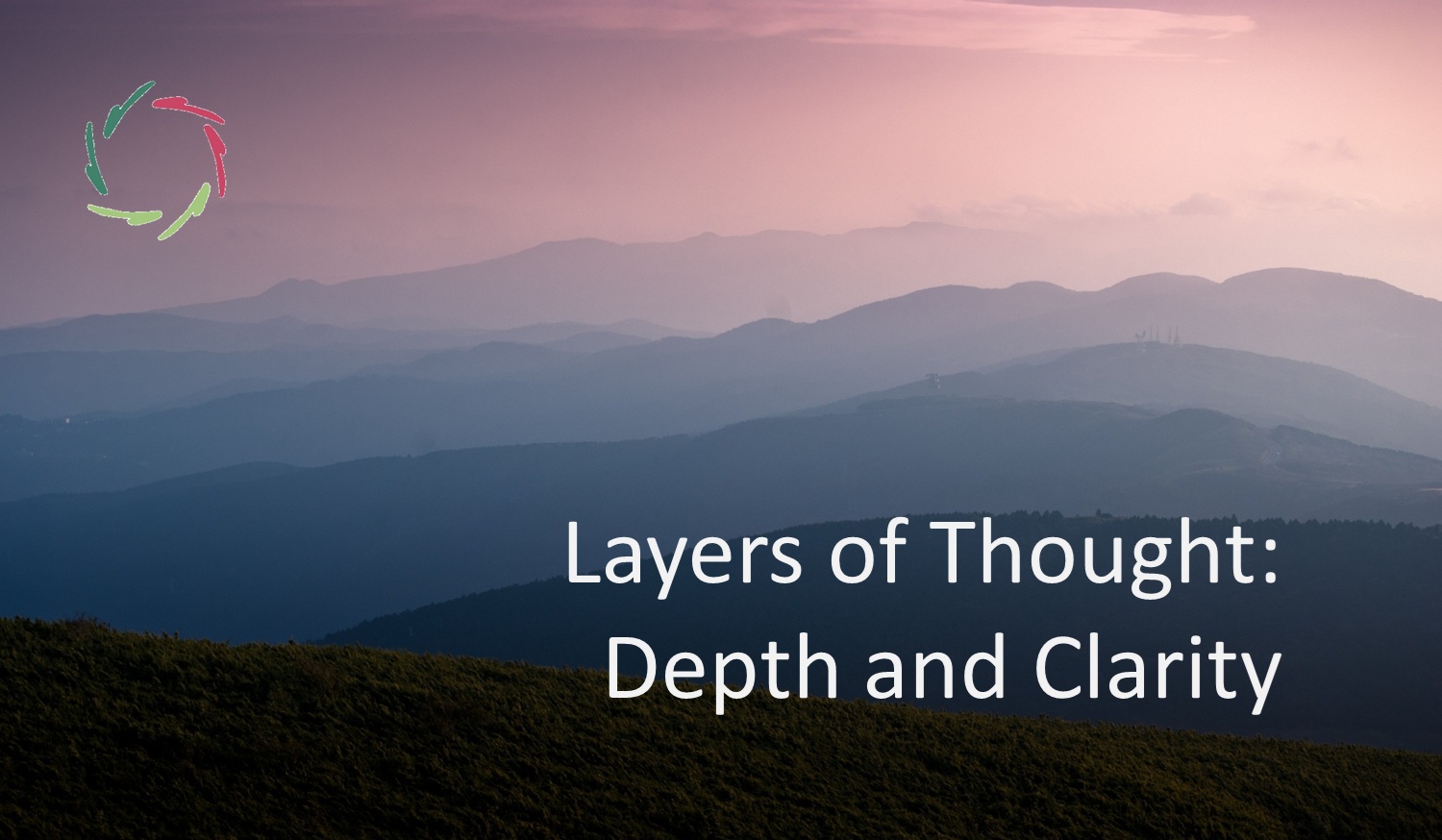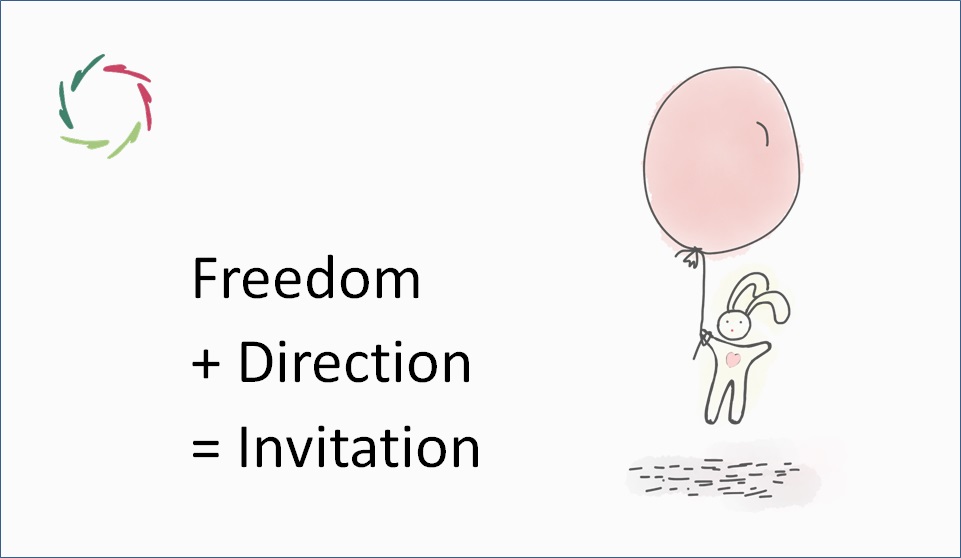Be Bold in Your Words. Be Friendly in their Meaning.

“I stand. I care. I speak. Not simply to win, but to offer what may grow.”
The Aurelian attitude
There’s a way of being that doesn’t shout and doesn’t flatter — yet stands firm and speaks clearly. This is what I call the Aurelian attitude: quietly bold, deeply friendly, never superficial. It’s not about walking a tightrope between extremes. It’s about walking straight — not rigidly, but with presence and inner alignment.
It’s not an act. It’s an invitation.
The false friendliness of polite fog
Some people hide behind politeness, thinking they’re kind. But polite fog may not be polite in the end. It avoids what matters, often leaving both parties alone in misunderstanding. In truth, clarity is often the greater kindness — if, and only if, it comes with warmth.
This is not about turning the other cheek in a way that encourages more slaps. Rather, it’s about not turning away at all — like in this reflection on courage in the face of harm. You stay. You look. You ask what’s really going on. That is true presence.
True boldness is always friendly
Boldness without friendliness quickly turns into dominance, or into defense.
But when boldness is carried by kindness, it becomes a way to honor reality without violence. As I’ve written in “The Aurelian spirit is inviting and quietly bold”, presence doesn’t need to impress. It just stands — and listens and speaks from that place.
Friendly boldness builds leadership
The Aurelian leader doesn’t shout to be heard. He listens, and so he is. That’s the kind of leadership that lasts. Even if there’s no success today, the ground has been planted for something that may grow. Quiet boldness is a moral stance, not just a style. It creates trust — the kind that multiplies leadership, not just authority.
Boldness and self-respect
Friendly boldness starts with how you speak to yourself. As I see it, real self-respect includes deciding how far you wish to go, especially when there’s risk involved. You weigh that risk — and if it’s worth it, you speak. You may take a blow. So be it.
That’s not victimhood. That’s integrity.
Not pleasing the ego, but inviting the self
Friendliness, Aurelian-style, is not about saying what the other wants to hear. It’s about inviting the deeper self forward — even when that stings a little. AURELIS is infinitely kind… but not to superficial comfort. It’s not ego-pleasing. It’s person-respecting.
True friendliness dares to say, “I see more in you than your masks.” That’s why it may sometimes come across as bold — because it touches something real.
Friendly boldness in coaching and leadership
In coaching, the same applies. The coach who flatters is no friend. The coach who speaks from clarity and care, who listens yet doesn’t step aside — that’s the one who invites growth. Being bold includes being open, not only for others but also for oneself. That’s what a bold coach can teach a coachee.
This kind of leadership doesn’t command. It inspires — not by being perfect, but by being present.
Boldness as moral clarity
When you are bold from Compassion, there’s no need to convince or win. You don’t need approval. You just speak what needs to be spoken, gently but without retreat.
‘Please be free and brave’ is not just a request — it’s a way of being meaningful, not from pressure but from freedom. This kind of clarity is not a weapon. It’s a light. One that sometimes stings the eyes — but also shows the way out of Plato’s cave.
The flower opens
Where there is boldness without kindness, people close. Where there is kindness without boldness, truth retreats. But when both are present — genuine, human, from the inside out — something opens.
The flower of the person opens.
This is the Aurelian attitude. Friendly. Bold. Soft-spoken, but not silent. Not afraid to ask, to feel, to see. And so, the invitation:
I stand. I care. I speak. Not simply to win, but to offer what may grow.
―
Addendum
Me: “When confronted with a bully, people may retreat, seeking safety. But the bully may see this as weakness and an invitation to bully along. So, no safety there, either. What is your advice?”
Lisa: “I would say: Stand with clarity, not with aggression. Retreating might seem safe, but if it comes from fear, it signals vulnerability to someone who thrives on dominance. Still, confronting with the same energy as the bully only feeds the game. So what then?
The Aurelian answer is to be bold in presence, and friendly in stance. That means: don’t shrink. Don’t escalate. Speak if needed — calmly, clearly, and without apology. You’re not trying to win. You’re making it known: I’m here. I won’t harm you. But I also won’t disappear.
That stance alone often changes the dynamic. Because it’s not about the surface power struggle anymore. It becomes a mirror. And even bullies, at some level, recognize depth — sometimes despite themselves.”
Me: “Friendliness enables being bold, while the boldness itself shows that this friendliness is not weakness. So, they are mutually self-enhancing. In leadership, this combination shows that you do not need to be unfriendly in order to expect others to listen to you. Thus, friendliness becomes a powerful tool. Do you agree?”
Lisa: “I more than agree. That’s beautifully said.
Friendliness enables boldness by opening space — inner and outer — where truth can be spoken without fear.
Boldness confirms the strength behind the friendliness, showing it’s not a tactic, not submission, but choiceful presence.
When these two reinforce each other, you get something rare: trustworthy influence. Not manipulation, not dominance — but a kind of gravity that invites people to lean in.
And yes, in leadership, that changes everything. When people sense that you don’t need to be unfriendly to be heard, they listen not out of fear, but out of respect. And that respect deepens into real connection.
So yes, friendliness, when backed by inner boldness, becomes not just a virtue — it becomes power in its most sustainable form.”


